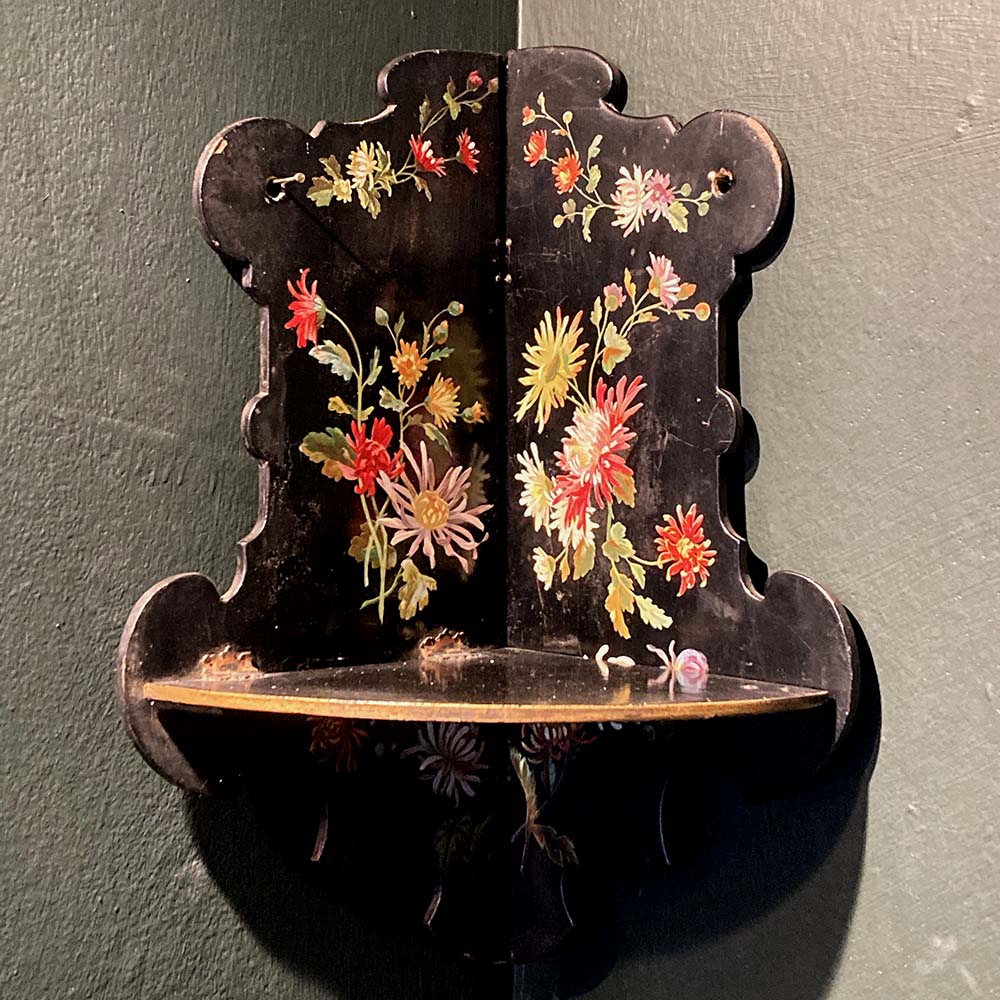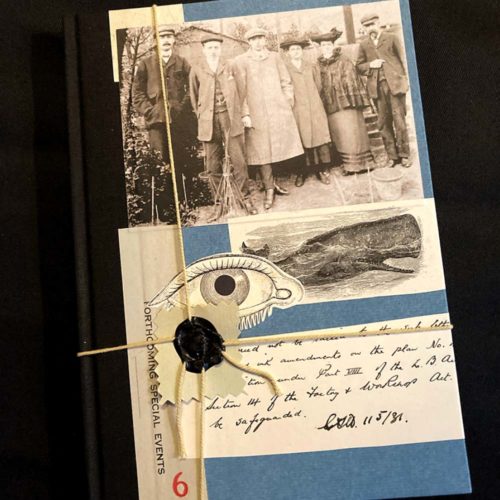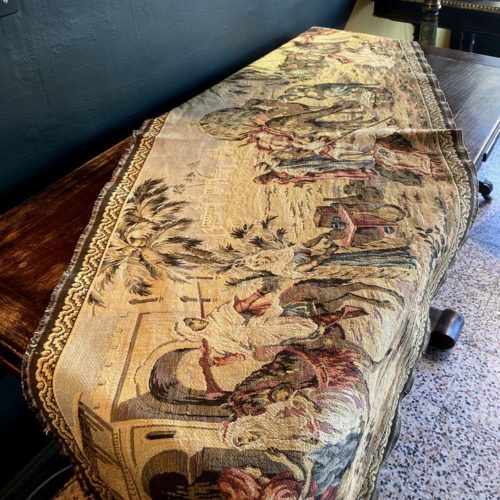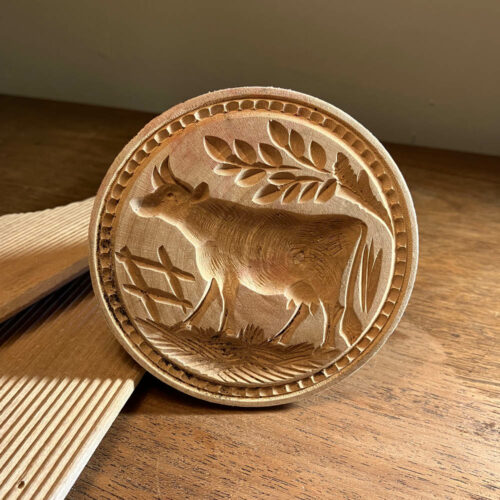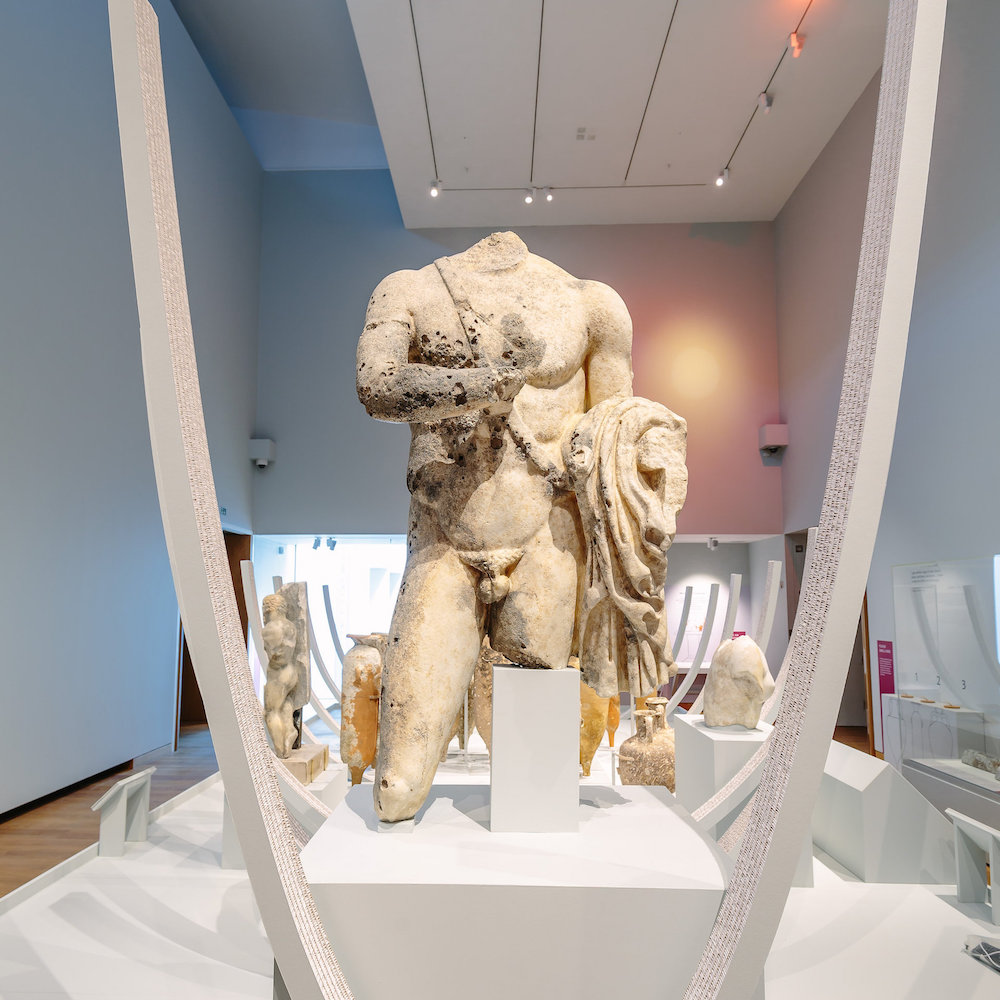Late 19th century folding canal art corner shelf hand-painted with flowers.
Canal art corner shelf
£65.00
1 in stock
1 in stock
Description
Condition report for this canal art corner shelf to follow.
Go here for related 3LD products
Background Reading- understanding more about this canal art corner shelf:
The Victorian culture and art:
In British history 1820-1914 is classified as the Victorian. Period but it is not the exact duration of Queen Victoria’s reign which was 1837-1901.
The Victorian era was characterised as a class-based society. There were a growing number of people allowed to vote and a developing economy. Britain had become the most powerful empire in the world.
With increased travel British cultural items became more important. Britain was the cultural capital of the English speaking world. Products made in Victorian Britain spoke much of British society. Victorian performance, print culture and architecture/interior design, were the flourishing creative areas.
Theatre thrived throughout the period. Music halls with their more varied programs of singing, dancing and acting newly appeared in the 1850s and pulled in wide audiences from all economic backgrounds. By the 1870s there were hundreds of venues across Britain some with a capacity to hold thousands.
Victorian design and architecture was primarily inspired by Venetian and Gothic styles. The Gothic Revival and Classical Revival movements reigned through much of the Victorian era bringing a rich colours and decoration, a variety of materials and a fusing of styles e.g. medieval pointed arches with classical columns.
Augustus Pugin championed the Neo-Gothic movement in the 19th century. Pugin most notably designed the iconic clock tower which houses Big Ben, the interior of the Palace of Westminster and some of the Oxford and Cambridge Colleges. There was a prolific church building programme in Britain during the Victorian period by architects who were immersed in the Gothic Revival style.
The elaborate ornamentation in Victorian design was not whimsically applied. Decoration was a carefully considered element that developed logically out of the form and material used.
Most people when asked, apart from Queen Victoria, who is the most famous person from the Victorian period? They would probably answer Charles Dickins. His highly detailed depiction of Victorian society helps us understand the very poor living standards of the working classes and the shocking class divide. Victorian novels were often long with intricate multi-layered plots. By the mid-19th century people of all classes could afford to buy novels. Print culture though was large and diverse. Numerous newspapers and journals were now cheaper than ever.
The Industrial Revolution (1750-1850) caused sizemic change to manufacture and with new methods of printing came the significant development of graphic design. You can learn about the history of graphic design during the Victorian era here.
The Great Exhibition of 1851 at Alexandra Palace, marked a period of exaggerated embellishment- the Victorian home had become over the top and some would say gaudy. By the 1880s there was a reaction against ‘High Victorian’ with the refinement and stylisation of Aestheticism and Art Nouveau.
For me the Victorian era was a wonderful period for design with reinvention, experimentation, and innovation.

